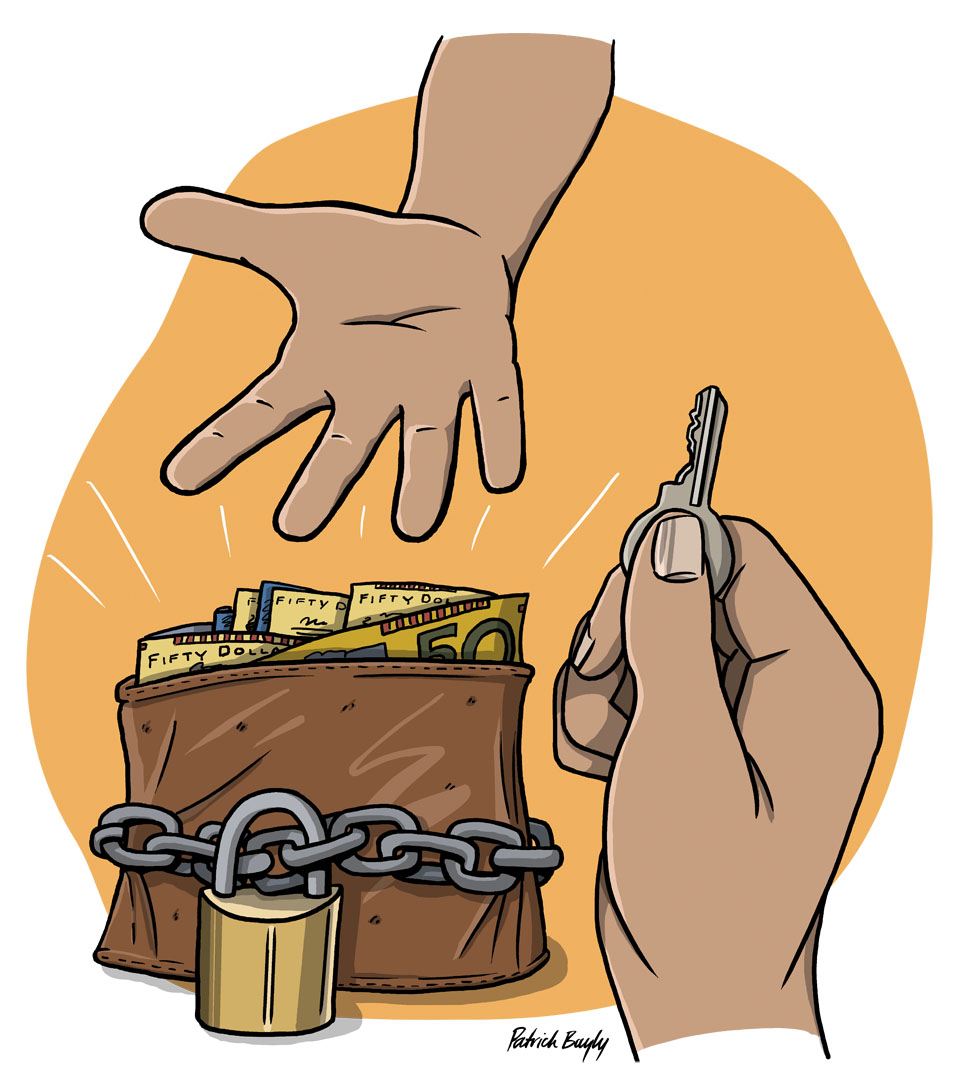Elder abuse
Everyone has the right to feel safe and be treated with respect. As an older person, you may be experiencing violence or abuse. Or you may know an older person who is experiencing violence or abuse. If an older person is experiencing violence or abuse from a person they trust, this is called elder abuse.
Elder abuse can be carried out by a person in a position of trust, such as an adult child, partner, other family member, friend, neighbour, carer, or someone who lives in your home or residential facility.
Elder abuse is wrong. In some cases, it may be a criminal offence.
You may need help to protect yourself and avoid this abuse. Go to the end of this webpage to find out where you can get legal help and more information.
Elder abuse is wrong. In some cases, it may be a criminal offence.
Quick Answers video: What is elder abuse?
| Download the fact sheet for this video |
What sort of actions are 'elder abuse'?
If an older person is experiencing violence or abuse, this is called elder abuse. Elder abuse is any act which causes harm to an older person and occurs within an informal relationship of trust, such as family or friends.
Different types of behaviour that could be elder abuse are listed below.

Financial abuse
This can be where a person in a position of trust takes advantage of this position to access your money or property. Such as:
- using their influence to ask you to do things with your money or property that you are not comfortable doing
- pressuring you to give or loan them money
- borrowing or holding on to your money or possessions and not returning these as promised
- using your money without your permission or authority
- selling your property without your permission or authority, or
- forcing you to sign documents you do not understand or agree with.
Emotional or psychological abuse
This can include when someone:
- threatens you
- calls you names
- swears, or shouts at you
- intimidates, or
- humiliates you.
Social abuse
This can include situations when someone isolates you or restricts you from doing certain activities you wish to do, such as:
- stopping you meeting your friends, grandchildren, or other family members
- not letting you take or make calls to those people
- hiding or reading your mail without your permission
- listening-in on your phone calls and conversations, or
- not letting you leave the home or go out.
Physical abuse
This includes when someone hurts or threatens to hurt you physically. For example, if someone slaps, spits, pushes, hits, or physically restrains you.
Sexual abuse
This includes:
- any unwanted sexual behaviour
- sexual activity that you do not consent to
- depriving you of privacy when showering, toileting, or changing, or
- watching pornographic material in your presence which makes you feel uncomfortable.
Neglect
This includes when someone is meant to take care of you but does not give you proper food, clothing, healthcare, medication, personal care, or shelter or even emotional support.
Legal Aid WA Elder Rights WA Strategy
Our Elder Rights WA Strategy focuses on five strategic objectives and is consistent with the Legal Aid WA vision of delivering equitable access to justice to support a fair and safe community.
Download: Legal Aid WA Elder Rights WA Strategy 2023-2025
Get help
Legal Aid WA has a specialist service called Elder Rights WA for Western Australians who are 65 years and older and Aboriginal and Torres Strait Islanders and culturally and linguistically diverse clients who are 55 years and older experiencing elder abuse.
It is a state-wide service that operates from the Perth office at Legal Aid WA. Appointments are offered by telephone, by video conference and in person. You can receive free and confidential legal advice from a lawyer. A social worker can also be present to assist and provide you with support. To find out if we can assist you, call our Infoline on 1300 650 579 or email ElderRightsWA@legalaid.wa.gov.au.
You may also be able to get help from these services:
-
An Elder Rights WA lawyer at Peel Community Legal Services can provide elder abuse services for people living in the Peel region. Call: (08) 9581 4511 or email: hello@peelcls.com.au.
-
Northern Suburbs Community Legal Centre - Older Peoples Rights Service provides legal advice, information, referral, and crisis counselling for older people who are experiencing elder abuse or are at risk of being abused. Call: (08) 9440 1663.
More information
-
Advocare runs the Elder Abuse Helpline which is a free and confidential helpline. It also has publications about elder abuse on its website. Call 1300 724 679 Monday to Friday 8.30am to 4.30pm.
-
The Aged Care Quality and Safety Commission provides a free service for anyone to raise their concerns about the quality of government subsidised care or services. Call: tel:1800 550 552 (9am–5pm, Monday to Friday) or you can lodge a complaint online.
- Compass is a national elder abuse knowledge hub which aims to help raise awareness. Call: 1800 353 374.
- Council on the Ageing Western Australia (COTA WA) is the peak body for older Western Australians with useful resources about elder abuse. Call: (08) 9472 0104.
- The Department of Communities has produced information on elder abuse, including ways to help prevent elder abuse.
- The Office of the Public Advocate (OPA) can provide information if you are concerned about an older person with reduced decision-making capacity or where an enduring power of attorney or guardianship may be misused. Call: 1300 858 455 or email: opa@justice.wa.gov.au.
- The WA Police has information about seniors and elder abuse on its website. Call: 131 144 or 000 (emergency or life-threatening situation).
Reviewed: 29 August 2025